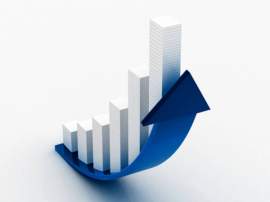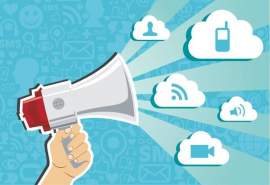
Foursquare Check In: How It Works, Why It Matters

When people began to hear about the idea of checking in with a social network and revealing their location, many were skeptical. However, with over a billion total check-ins reported so far, the Foursquare check in is obviously here to stay, at least for the near future. If you've never tried to check in on Foursquare, you may want to start. Encouraging Foursquare check in from potential new clients can be a very valuable tool for technologically and socially savvy legal marketers. Here, we'll look at some of the most commonly asked questions about Foursquare check in, as well as learning some aspects of check in with Foursquare that attorneys and law firms specifically need to know.
What is a Foursquare Check In?
Because mobile phones now keep track of the user's location using global positioning satellites, any smart phone can now tell exactly where its user is to a very high degree of specificity. Foursquare check in takes advantage of these GPS tracking capabilities by allowing users to broadcast their location, as well as what time they were at that location.
Foursquare check-ins are visible on the location's page for up to three hours after the person makes their initial check in on Foursquare. If the user makes another Foursquare check in before the three hours has elapsed, they will no longer show up as being at the first location. This ensures that no one can check in on Foursquare to two locations simultaneously.
How Do I Check in on Foursquare?
It's incredibly simple to complete the Foursquare check in process. You actually don't need to do very much at all—just open the app and follow a few basic directions. With a very small number of taps on either iOS, Android, or Blackberry devices, you'll be able to check in on Foursquare in less than 30 seconds. Your Foursquare check in process will only complete if the Foursquare servers are up. In some cases, down time may make it impossible to do a check in on Foursquare for several minutes or hours.
The reason it's so easy to check in on Foursquare is that the app wants to encourage you to check in several times a day. In fact, there are actually badges on Foursquare for people who make enough check ins in a single period. For example, you can get one badge for doing a check in on Foursquare 12 different times in a single 24 hour period.
Why Do People Use Foursquare Check In?
One of the first things that people tend to ask when they hear about check in on Foursquare is: why would anyone ever use it? Attorneys, in particular, tend to be very protective of their personal privacy and client confidentiality, and are wary about letting people see exactly what they are doing.
When people start using Foursquare check in, they get a “newbie” badge. The badge system seems to encourage people to check in on Foursquare frequently, especially because users may not always know which check-in location will give them a new badge.
Aside from the badging idea, there's really a change going on to the way that young, social, mobile web users view privacy. Many of the younger generation of web users have grown up in an era where being observed all the time can be a status marker. By using Foursquare check in, they show their friends where they are and what their interests are.
Legal Ethics Issues With Foursquare Check In
Attorneys need to be somewhat careful when dealing with check in on Foursquare. You don't want to compromise client information in any way, or reveal to people that you have met with a particular client at a certain time. While it's fine for your clients to check in on Foursquare at your office, you certainly wouldn't want to be the person to mention who is with you.
Perhaps the best way to make sure that you're not making any ethical mistakes with your Foursquare check in policies is to talk to your state bar association. As social networking takes off, many bar associations are developing comprehensive policies about how attorneys may and may not use these networks. Checking is always better than ending up in hot water with the bar because you violated a new set of social network ethics rules.
Offering Discounts to Foursquare Check In Users
When someone does a check in on Foursquare, you can actually provide them with discounted services. While not all attorneys will want to take advantage of this, it's certainly not a bad idea for solo practitioners who need more business or young attorneys just starting out who need experience.
One of the other aspects of Foursquare check in discounts isn't often used by attorneys. This is the frequent shopper discount, which is given only to people who visit you and check in on Foursquare at your location several times in a given time period.
Geo-Fencing and Foursquare Check In
Whenever someone does a check in on Foursquare in your vicinity, you may want them to get an advertisement for your firm. This is possible through Foursquare's new geo-fencing system. Geo-fencing means that you put an invisible border around an area, and anyone who tries to check in on Foursquare in that area will see the advertising that you've asked to be displayed.
The Future of Foursquare Check In
Many people who have researched how people check in on Foursquare agree that in some ways, the novelty of check-ins is wearing off for users. Because of this, Foursquare check in is about to be more about discounts and promotions, as well as gathering information like business hours and reviews, than it is about the game of getting badges and sharing locations.
You may want to start preparing for this new world of Foursquare by encouraging clients who are Foursquare users to give you positive “tips” so that other users can see good reviews. In this way, Foursquare will be better able to compete with Yelp and Google reviews.



















